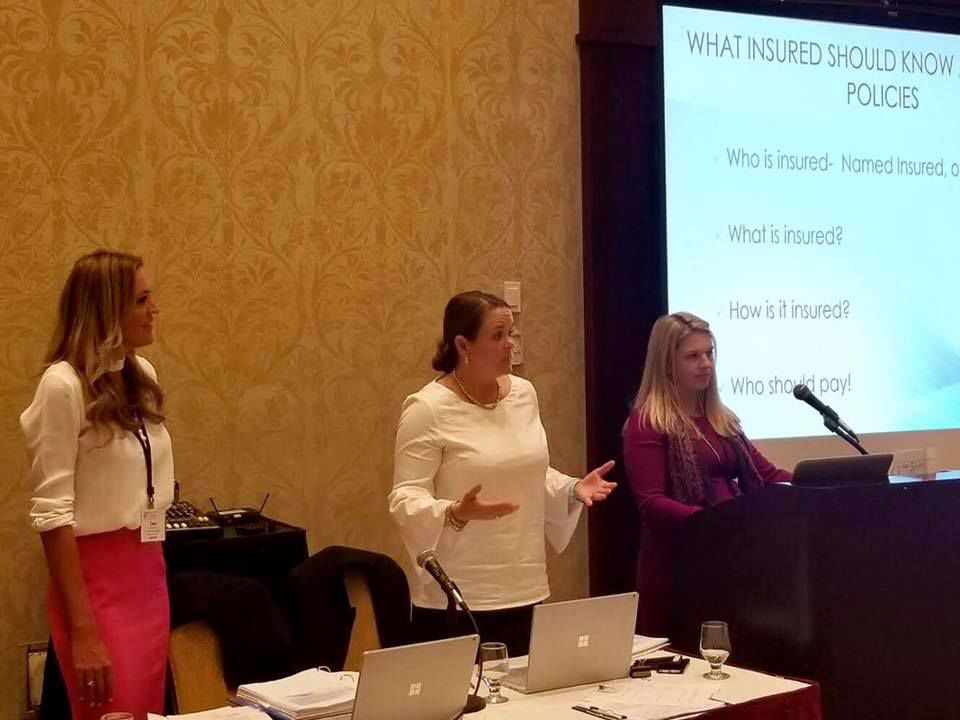The Ethical Standards Required of Public Adjusters

Professionals in a variety of industries have certain duties to their clients, patients or customers. Many are aware of and appreciate this fact. In finance, for example, many personal advisors and wealth managers have fiduciary responsibilities to those they help with money matters. They’re required to further their clients’ financial interests above those of their own. In the medical field, doctors and surgeons must take the Hippocratic Oath. In doing so, physicians promise to “do no harm” and always ensure their patients’ privacy is zealously preserved.
But doctors, advisors, lawyers and a few others aren’t the only ones who are ethically duty bound to their clientele. So too are public adjusters.
As a property owner, do you know your rights and what you can expect? Were you even aware that public adjusters have their own set of rules and obligations they’re sworn to uphold when it comes to filing insurance claims on businesses’ behalf?
At Stone Claims Group, our interest is your self interest and maximizing your claim. This is one of the ways we’re different from traditional insurance adjusters. While they serve the interests of their employer, you’re our employer, and we work for you. As such, our priorities align with yours.
We don’t just say all this because it’s true; we say it because we’re required to comply with strict ethical standards. States have rules on the books that establish what standards and principles public adjusters are bound by — and what can happen if those statutes aren’t upheld.
Here are a few of the ethical requirements for public adjusters in Florida. There are dozens of them, but we’ll go over some of the main ones and explain what they mean to you as a business owner, and to us as public adjusters:
1. “An adjuster shall not directly or indirectly refer or steer any claimant needing repairs or other services in connection with the loss to any person with whom the adjuster has an undisclosed financial interest, or who will or is reasonably anticipated to provide the adjuster any direct or indirect compensation for the referral or for any resulting business.”
This is a long way of saying adjusters cannot direct their clients to specific entities with which they have business ties. Say your roof is severely damaged and you need to have it repaired or replaced. Any recommendation adjusters make for who to hire must not in any way be done for material gain. If there is some kind of association with a roofing company, an adjuster must let their clients know of this fact. In short, adjusters must engage in full transparency.
2. “An adjuster shall treat all claimants equally.”
Equal treatment can be construed in a number of different ways, but in the adjusting and insurance realm, it refers to favoritism (i.e. being preferential to one client over another), the manner in which claims are adjusted (in keeping with the terms and conditions enumerated on the insurance policy), and being truthful about investigations. For instance, one of the services we provide is property inspection, which helps us evaluate what occurred during a covered event. We have to report the facts as we see them — and back those findings up with hard evidence.
3. “An adjuster shall not knowingly fail to advise a claimant of the claimant’s claim options in accordance with the terms and conditions of the insurance contract.”
While most of the ethical requirements of adjusters involve specific actions, this one pertains to non-actions. We are obligated to be forthcoming about all of your options. If we leave something out — and are fully aware we’re doing so — we’ve violated your trust. There are consequences for that. Just as there are wrongs of commission, there are wrongs of omission as well.
4. “A public adjuster shall not prevent, or attempt to dissuade or prevent, an insured or claimant from speaking privately with the insurer, company employee adjuster, independent adjuster, attorney, or any other person, regarding the settlement of the claim.”
We’ve been in this line of work for a long time and observed many scenarios involving claimants’ dealings with insurers, for bad and good. While we will make recommendations from time to time, you’re the boss. We make suggestions, you make decisions.
What happens to adjusters who don’t conform to the code of ethics?
The punishment for breaking any of the ethics rules depends on the grievousness of the offense. They can include a financial penalty, license suspension or surrender. Even a suspended license can cause permanent damage, particularly from a standpoint of public relations.
Ethics are highly important to us at Stone Claims Group, so when we say you can trust us, we mean it. Our reputation is at stake, and in this line of work, reputation is everything. For more information on our services, mission and the areas we cover, please contact us today.
Getting you what’s FAIR.
Any views and opinions expressed in this blog are those only of the author of same and may not be imputed to Stone Claims, its current or former agents, or their assigns and successors. Under no circumstances shall Stone Claims be held responsible or liable for same including, but not limited to, for any errors or omissions in the content of same.